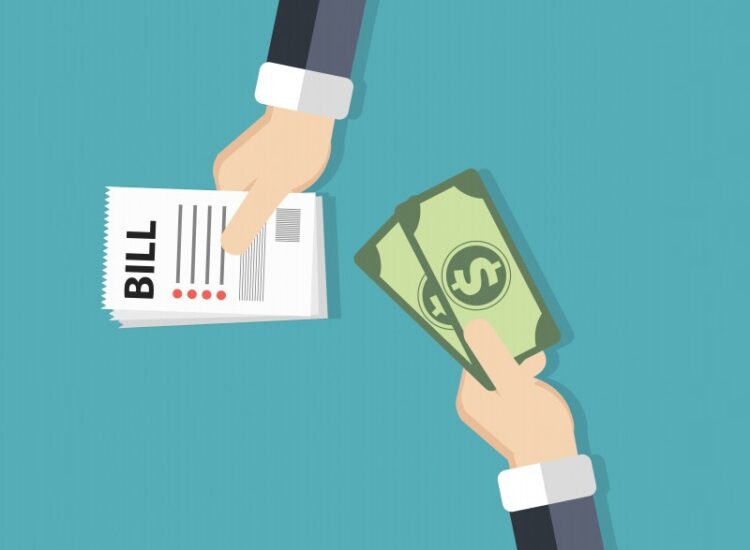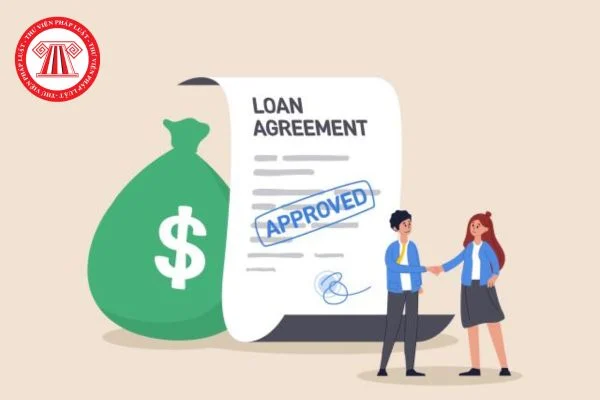A mortgage consolidation loan can serve as a powerful tool for homeowners looking to simplify their debt management. However, it’s essential to understand the potential pitfalls that come with this financial decision. While it offers the potential for lower monthly payments and simplified budgeting, it can also lead to increased long-term debt and a higher overall interest payment. A comprehensive understanding of your financial situation, as well as the specific loan terms, is crucial before proceeding.
Toc
- 1. Understanding Mortgage Consolidation Loans
- 2. Benefits of a Mortgage Consolidation Loan
- 3. Drawbacks of a Mortgage Consolidation Loan
- 4. Related articles 01:
- 5. Types of Mortgage Consolidation Loans
- 6. Finding the Best Mortgage Consolidation Loan Lenders
- 7. Mortgage Consolidation Loan for Bad Credit
- 8. Related articles 02:
- 9. Alternative Debt Consolidation Strategies
- 10. Addressing Specific Scenarios
- 11. Tips for Long-Term Financial Health
- 12. Conclusion
Understanding Mortgage Consolidation Loans
A mortgage consolidation loan is a financial product designed to help homeowners manage multiple debts by combining them into a single, more manageable monthly payment. This process typically involves refinancing your existing mortgage to include additional debts, such as credit cards or personal loans. By leveraging the equity in your home, you can secure a larger mortgage that pays off these high-interest obligations.
How It Works
Understanding how a mortgage consolidation loan works is simple. When you refinance your mortgage, you replace your existing loan with a new one that has a larger principal amount. For instance, if your current mortgage balance is $150,000 and you qualify for a new loan of $200,000, you can use the extra $50,000 to pay off other debts. This strategy can lead to significant savings in interest rates and create a more predictable monthly payment schedule.
Eligibility Requirements
To qualify for a mortgage consolidation loan, lenders typically consider several factors, including your credit score and the amount of equity in your home. Generally, a credit score of 620 or higher is favorable, but some lenders may accommodate those with lower scores, particularly under the “mortgage consolidation loan bad credit” category. Additionally, having substantial equity in your home can enhance your chances of approval.
Comparing Offers
It’s crucial to compare offers from multiple mortgage consolidation loan lenders to find the best deal. Each lender may have different interest rates, fees, and terms, so taking the time to shop around can save you significant money in the long run.
Benefits of a Mortgage Consolidation Loan

When considering a mortgage consolidation loan, it’s essential to weigh its advantages to make an informed decision.
Lower Monthly Payments
One of the most significant benefits of consolidating debts into a mortgage is the potential for lower monthly payments. For example, a family paying $2,500 a month on credit cards and a $1,500 mortgage might see their total monthly payment drop to around $2,000 after consolidation. This reduction frees up $500 monthly for other needs, significantly improving cash flow. As a result, families can reduce financial stress, allocate funds to savings, or cover unexpected expenses, thus enhancing their overall quality of life.
Reduced Interest Rates
Mortgage rates are generally lower than those of unsecured loans, allowing you to save on interest payments over time. When consolidating high-interest debts into a mortgage, homeowners often benefit from this lower rate, translating into substantial savings.
Simplified Financial Management
Managing one payment instead of multiple debts can significantly reduce financial stress and help you stay organized. This streamlined approach allows you to focus on a single monthly payment, making it easier to track finances and avoid missed payments.
Potential Tax Deductions
Mortgage interest may be tax-deductible, unlike interest on credit cards or personal loans. This potential tax benefit can further enhance the appeal of a mortgage consolidation loan. Consult with a tax professional to understand how this might apply to your situation.
Improved Credit Score
Successfully managing your mortgage payments can positively affect your credit score, especially if you were previously struggling with high credit card balances. A lower credit utilization ratio and consistent mortgage payments can contribute to a healthier credit profile over time.
Drawbacks of a Mortgage Consolidation Loan

While there are clear benefits, it’s equally important to consider the drawbacks of mortgage consolidation loans.
Increased Overall Loan Amount
Although consolidating debts can reduce monthly payments, it can lead to a higher overall loan amount. When you combine debts into a mortgage, you may be extending the repayment period, which could result in paying more interest over time. For instance, a 30-year mortgage will accrue far more interest than a 15-year mortgage, even if the monthly payments are lower. This could ultimately negate some of the benefits of consolidation.
Longer Loan Terms
Extending the loan term may lower monthly payments, but it can increase the total interest paid throughout the loan’s life. Homeowners should carefully evaluate how much interest they are willing to pay over the long term.
3. https://nhagobinhthuoc.com/mmoga-secure-your-financial-future-a-guide-to-mobile-home-equity-loans/
4. https://nhagobinhthuoc.com/mmoga-secure-your-future-a-guide-to-fixed-rate-student-loans/
5. https://nhagobinhthuoc.com/mmoga-rocket-loans-personal-loan-a-borrowers-guide/
Risk of Losing Your Home
If you default on your mortgage, you risk foreclosure, which is not a concern with unsecured debts. This added risk makes it crucial to ensure that you can manage the new mortgage payments comfortably.
Closing Costs and Fees
The costs associated with obtaining a mortgage consolidation loan, such as closing costs and origination fees, can be significant and should be factored into your decision. It’s vital to calculate whether the potential savings outweigh these costs.
Types of Mortgage Consolidation Loans
Understanding the different types of mortgage consolidation loans available can help you choose the right option for your needs.
Cash-Out Refinance
A cash-out refinance allows you to refinance your existing mortgage for more than you currently owe, receiving the difference in cash. This option is suitable for homeowners with significant equity in their homes, enabling them to pay off high-interest debts while accessing cash for other purposes.
Rate and Term Refinance
This type of refinance involves obtaining a new mortgage at a lower interest rate or extending the loan term. While it may not provide extra cash, it can lead to lower monthly payments and reduced financial strain.
Home Equity Line of Credit (HELOC)
A HELOC is a revolving credit line that allows you to borrow against the equity in your home. This option provides flexibility but often comes with variable interest rates, which can fluctuate over time. Homeowners should be cautious and understand the risks associated with HELOCs, especially if they plan to use them for debt consolidation.
Finding the Best Mortgage Consolidation Loan Lenders

Choosing the right lender is crucial for maximizing your savings and ensuring a smooth process when applying for a mortgage consolidation loan. Here are some tips for finding the best mortgage consolidation loan lenders:
Compare Interest Rates and Fees
Start by comparing interest rates and fees from various lenders. A small difference in rates can lead to significant savings over the life of the loan.
Consider Your Credit Score
Your credit score plays a vital role in determining the terms of your mortgage consolidation loan. If your score is less than ideal, consider taking steps to improve it before applying.
Research Lender Reputation
Look into the reputation of potential lenders by reading customer reviews and seeking recommendations. Good customer service can make a significant difference in your overall experience.
Utilize Online Tools
Online mortgage calculators, such as a “mortgage consolidation calculator” or a “debt consolidation mortgage refinance calculator,” can help you estimate potential monthly payments and savings. However, remember that these tools provide estimates and should not replace professional financial advice.
Explore Large Lenders
While companies like Rocket Mortgage offer streamlined processes for securing a mortgage consolidation loan, it’s essential to compare their offers with those from smaller lenders. This will help ensure you find the best mortgage consolidation loan that suits your financial needs.
Rise of Online Lenders
In recent years, online lenders have gained popularity in the mortgage market. Their convenience allows borrowers to apply for loans from the comfort of their homes, and they often promise faster processing times. However, potential borrowers should remain cautious of higher fees and a lack of personalized service that some online lenders may present. For example, companies like Better.com have made a significant mark on the industry, providing quick approval times and competitive rates. Nevertheless, it’s essential to review customer feedback and conduct thorough research before selecting an online lender.
Mortgage Consolidation Loan for Bad Credit
If you have bad credit, obtaining a mortgage consolidation loan may still be possible. Here are some strategies to consider:
Improve Your Credit Score
Before applying for a mortgage consolidation loan, work on improving your credit score by paying down existing debts and making timely payments. This can enhance your chances of qualifying for better terms.
Explore Alternative Lenders
Some lenders specialize in providing mortgage consolidation loans to individuals with bad credit. Research these options thoroughly to find a lender that fits your needs.
2. https://nhagobinhthuoc.com/mmoga-secure-your-financial-future-a-guide-to-mobile-home-equity-loans/
3. https://nhagobinhthuoc.com/mmoga-secure-your-future-a-guide-to-fixed-rate-student-loans/
5. https://nhagobinhthuoc.com/mmoga-rocket-loans-personal-loan-a-borrowers-guide/
Set Realistic Expectations
Understand that while there are options available for those with bad credit, you may face higher interest rates or less favorable terms. It’s essential to weigh the pros and cons carefully.
Alternative Debt Consolidation Strategies
If a mortgage consolidation loan is not the right fit for you, consider these alternative debt consolidation strategies:
Personal Loans
Personal loans can be an effective way to consolidate smaller debts. They typically have fixed interest rates and repayment schedules, allowing you to pay off your debts without putting your home at risk. However, personal loans often come with higher interest rates than mortgage loans.
Balance Transfers
Balance transfer credit cards that offer 0% introductory APR periods can help you consolidate high-interest credit card debt. This allows you to transfer your debt to a card with no interest for a limited time, enabling you to pay it off faster. Be cautious of the terms and fees associated with balance transfers.
Debt Management Plans (DMPs)
DMPs involve working with a credit counseling agency that negotiates with creditors on your behalf to lower interest rates and create a manageable repayment schedule. However, DMPs may require you to stop using credit cards during the repayment period.
Addressing Specific Scenarios
Many potential borrowers have unique questions regarding mortgage consolidation loans. Here are answers to some common scenarios:
Can I Combine Two Mortgages on Two Different Properties?
Combining two mortgages on different properties can be complex. While it’s possible to refinance each mortgage into a single new loan, lenders typically require the properties to be in the same name and may have specific eligibility criteria. Consulting with a mortgage professional can help you explore your options.
Considering Large Lenders like Rocket Mortgage
While companies like Rocket Mortgage provide streamlined processes for obtaining a mortgage consolidation loan, it’s essential to shop around and compare offers from various lenders. This ensures you find the best mortgage consolidation loan tailored to your financial needs.
Tips for Long-Term Financial Health
Achieving a successful debt consolidation outcome requires more than just securing the loan. Here are practical tips for maintaining long-term financial health:
Budgeting and Financial Planning
Creating a realistic budget is essential for effective financial management. Track your income and expenses to identify areas where you can save, ensuring you can make timely payments on your mortgage and avoid future debt accumulation.
Avoiding Future Debt
Develop responsible spending habits to prevent falling back into debt. This may include limiting credit card use, building an emergency fund, and prioritizing essential expenses.
Seeking Professional Advice
When navigating complex financial decisions, consider consulting a financial advisor or credit counselor. Their expertise can help you make informed choices and develop a sustainable financial strategy.
Conclusion
A mortgage consolidation loan can be a powerful tool for simplifying debt and reducing monthly payments, but it’s crucial to understand the process fully and carefully weigh the pros and cons. Recent interest rate hikes can impact your eligibility and the overall cost of borrowing, making it more important than ever to explore all options. By comparing lenders, understanding your credit score, and seeking professional financial advice, you can make an informed decision that best suits your financial situation.
As you navigate the complexities of mortgage consolidation, remember that the right strategy can lead to greater financial stability and peace of mind. Always consider speaking with a qualified financial advisor or mortgage broker to discuss your specific circumstances and explore the best options for debt consolidation that align with your long-term financial goals.










